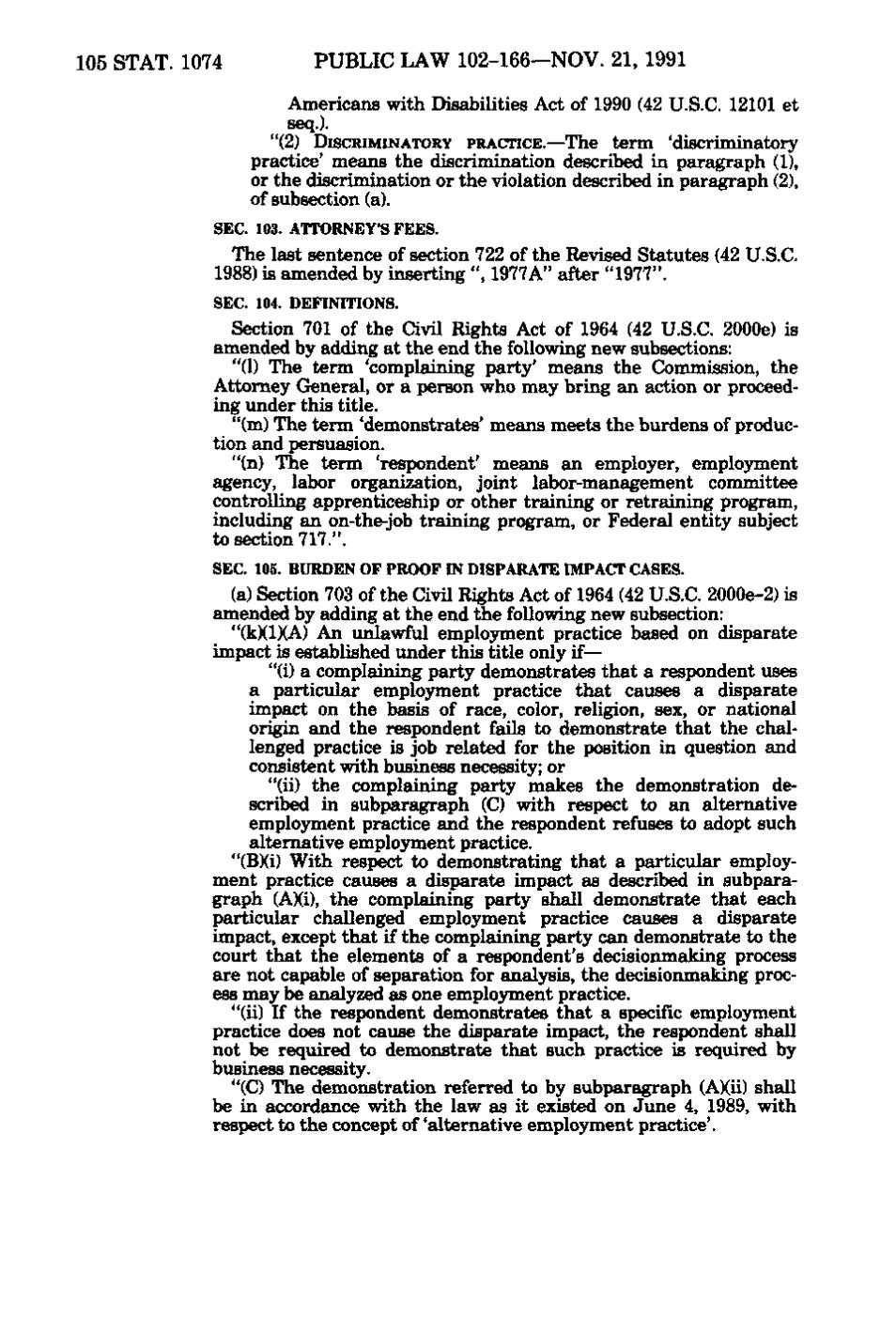105 STAT. 1074 PUBLIC LAW 102-166—NOV. 21, 1991 Americans with Disabilities Act of 1990 (42 U.S.C. 12101 et seq.). "(2) DISCRIMINATORY PRACTICE. —The term 'discriminatory practice' means the discrimination described in paragraph (1), or the discrimination or the violation described in paragraph (2), of subsection (a). SEC. 103. ATTORNEY'S FEES. The last sentence of section 722 of the Revised Statutes (42 U.S.C. 1988) is amended by inserting ", 1977A" after "1977". SEC. 104. DEFINITIONS. Section 701 of the Civil Rights Act of 1964 (42 U.S.C. 2000e) is amended by adding at the end the following new subsections: "(1) The term 'complaining party' means the Commission, the Attorney General, or a person who may bring an action or proceeding under this title. "(m) The term 'demonstrates' means meets the burdens of production and persuasion. "(n) The term 'respondent' means an employer, employment agency, labor organization, joint labor-management committee controlling apprenticeship or other training or retraining program, including an on-the-job training program, or Federal entity subject to section 717.". SEC. 105. BURDEN OF PROOF IN DISPARATE IMPACT CASES. (a) Section 703 of the Civil Rights Act of 1964 (42 U.S.C. 2000e-2) is amended by adding at the end the following new subsection: "(k)(l)(A) An unlawful employment practice based on disparate impact is established under this title only if— "(i) a complaining party demonstrates that a respondent uses a particular employment practice that causes a disparate impact on the basis of race, color, religion, sex, or national origin and the respondent fails to demonstrate that the challenged practice is job related for the position in question and consistent with business necessity; or "(ii) the complaining party makes the demonstration described in subparagraph (C) with respect to an alternative employment practice and the respondent refuses to adopt such alternative employment practice. "(B)(i) With respect to demonstrating that a particular employ- ment practice causes a disparate impact as described in subparagraph (A)(i), the complaining party shall demonstrate that each particular challenged employment practice causes a disparate impact, except that if the complaining party can demonstrate to the court that the elements of a respondent's decisionmaking process are not capable of separation for analysis, the decisionmaking process may be analyzed as one employment practice. "(ii) If the respondent demonstrates that a specific employment practice does not cause the disparate impact, the respondent shall not be required to demonstrate that such practice is required by business necessity. "(C) The demonstration referred to by subparagraph (A)(ii) shall be in accordance with the law as it existed on June 4, 1989, with respect to the concept of 'alternative employment practice'.
�
